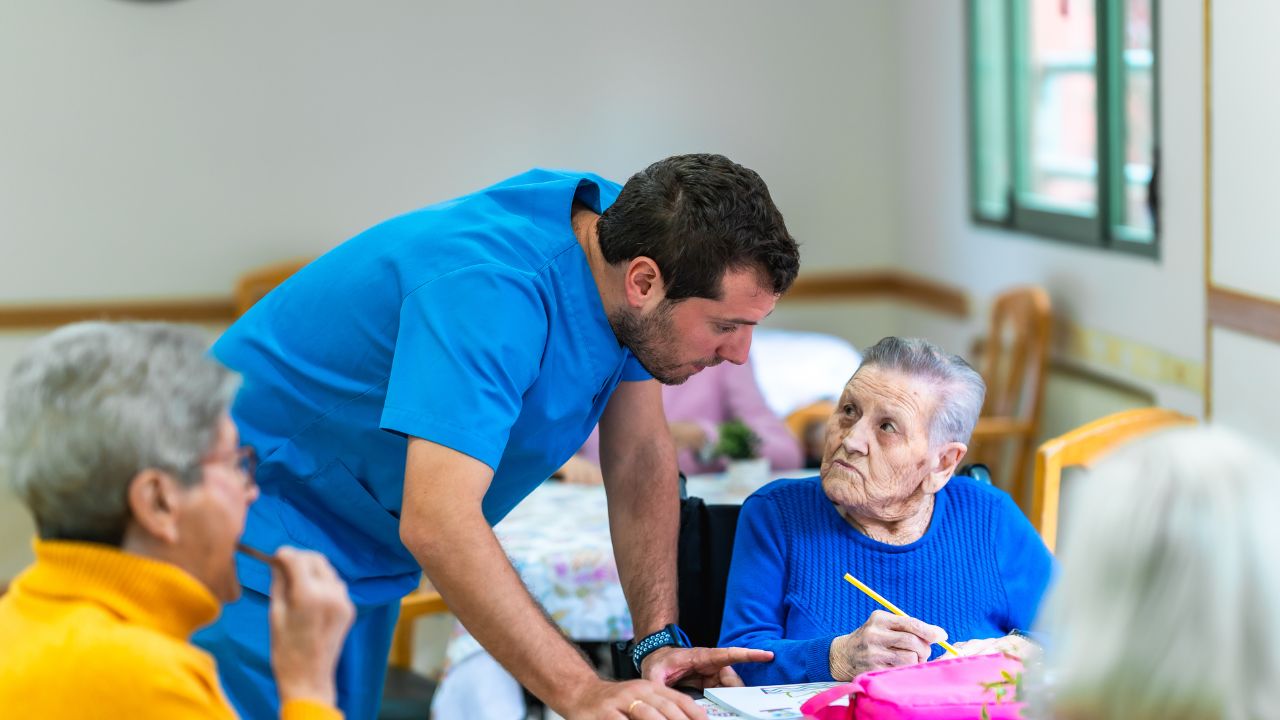Elderly care is a system that our older generation needs and deserves. But with a critical nursing shortage occurring within nursing homes, providing quality care to our senior population is at risk. In fact, according to the American Association of Colleges of Nursing (AACN), “shortages of nurses are expected to intensify as Baby Boomers age, and the need for stable health care grows.” A nursing shortage, exacerbated by the pandemic, is now causing the current healthcare system to suffer from a major deficit of qualified nurses in nursing homes. Subsequently, there is a growing problem in the United States regarding how to care for our senior citizen generation, who comprise almost seventy-five million.
Ultimately, if there were ever a time to pursue a career in aged care nursing, this is the time. Read on to understand what roles nurses play in caring for the elderly and why this specialty could be considered one of the most rewarding jobs in the nursing industry.
Why Our Elderly Generation Deserves More
Nursing shortages have always presented obstacles within many specialty areas of nursing, but perhaps one area that has been affected the most is the field of geriatrics. The US Bureau of Labor Statistics reported that since February 2020, more than 420,000 employees in nursing and residential care facilities have exited the field. Correlating directly to the COVID-19 pandemic, nurse burnout has left nursing homes struggling to recover as nursing shortages continue to surge.
According to a report in Statista, in 2019, there were over 15,000 nursing homes in the United States. Furthermore, experts predict that by 2050, approximately 15,000,000 senior citizens will need quality long-term care. Compounded by nursing shortages, nursing homes are in dire need of nurses to fill positions in senior residential care facilities. As a result, geriatric nursing is one of the fastest-growing specialties in the United States. Therefore, registered nurses (RNs), licensed practical nurses (LPNs), along with certified nursing assistants (CNAs), who are interested in helping the elderly with basic and advanced treatment, should consider the advantages of working in the field of senior care.
The Role of Nurses in Nursing Homes

Choosing an RN career at a nursing home requires compassion and patience. Moreover, a few specific skills are needed to work in a nursing home setting. While the specific roles of a nurse can vary depending on the type of nursing home facility, in general, nurses who work in a nursing home are responsible for the complete care of their residents, including the following duties:
- Treatment plans
- Medicine administration
- Food preparation plans
- Basic care, such as bathing and grooming
- Drawing blood and checking vitals
In addition, depending on an individual’s nursing certification, other advanced skill sets may be required for nurses to work at nursing homes. These can include anything from being able to operate oxygen apparatuses to the administration of medications and fluids through an intravenous (IV) line. As a general rule of thumb, being a nurse in a nursing home always requires RNs to have advanced cardiac life support (ACLS) certification.
Aside from physical tasks, nurses should also be prepared emotionally to care for both stable and long-term elderly patients who may enter hospice. While this can be challenging for many nursing professionals, the ability to provide support for the elderly can also be an extremely emotionally rewarding job. This satisfaction is partly due to the rich relationships formed with senior patients and their families.
Additionally, nurses working in a nursing home should have a good fitness level, as many senior care positions demand nurses to be on their feet for an extended time. By the same token, nurses within this field may find the physical demands of nursing home care to complement their preferred daily activity levels, meaning that being a nursing home nurse can be a lively and creative environment for an active person who likes to stay on their feet.
Ultimately, if a nurse chooses a career in senior caregiving, they should expect to provide a depth of emotional and physical support to their senior residents. It’s also equally important for nurses working in nursing homes to seek emotional support from peers, coworkers, or outside resources when needed.
Top Reasons to Consider a Career as a Nursing Home Nurse
The US Bureau of Labor Statistics reports that healthcare is considered one of the fastest-growing occupations in the nation. According to their prediction, “healthcare occupations is projected to grow 16 percent from 2020 to 2030, much faster than the average for all occupations, adding about 2.6 million new jobs.'' Furthermore, geriatric nursing is expected to have a 19-26% increase in job growth. But what type of nurses are generally certified to work in nursing homes?
In general, three types of nurses can be found in nursing facilities: RNs, LPNs, and nurse practitioners (NPs)—as well as CNAs. Many nurses already working in nursing homes will say that this type of career, while demanding at times, can be incredibly fulfilling on an emotional level. Nurses can expect to form long-term bonds and relationships with their patients. Additionally, working as an RN in a nursing home has several advantages, such as the following:
- Not having to work in a hospital setting
- Flexible schedules
- Building personal connections and creating healthy bonds with residents
- Making a genuine impact on an elderly person’s lifestyle and continued healthcare
Essentially, nurses looking for a challenging yet extremely rewarding career in nursing should seriously consider nursing care for the elderly. This care may include working in home health care, assisted living facilities, or nursing homes.
Demand for Quality Compassionate Elderly Care Is Growing
Senior care is specialized care designed to help give compassionate, quality, and consistent care to our elderly population. According to the United States Census Bureau, by 2050, the US population aged sixty-five and older is estimated to double, reaching 83.7 million. As a result, the demand for quality nursing care in nursing homes is growing daily. And while certified nurses may find senior caregiving emotionally challenging at times, it can simultaneously be one of the most rewarding careers in nursing due to forming intimate, life-long bonds with senior residents.
Nursa helps healthcare facilities from all over to fill short-term staffing needs and helps nurses find flexible, high-paying jobs. So, if you are a nurse looking for a fulfilling career in a nursing home environment, you can use our PRN staffing app to connect to local facilities directly in real-time. Start your caregiving career search on Nursa and improve a life today.








.jpg)





